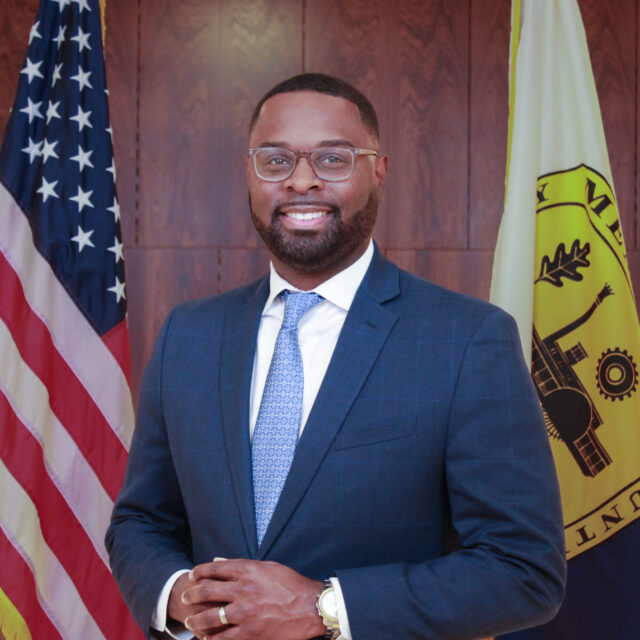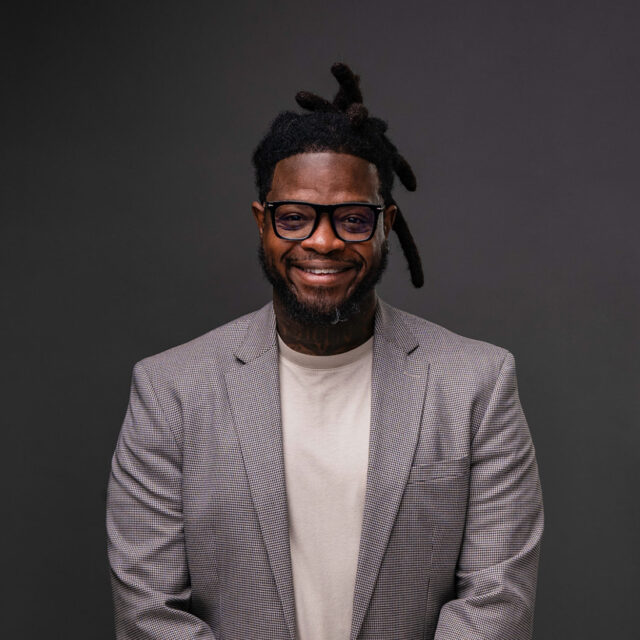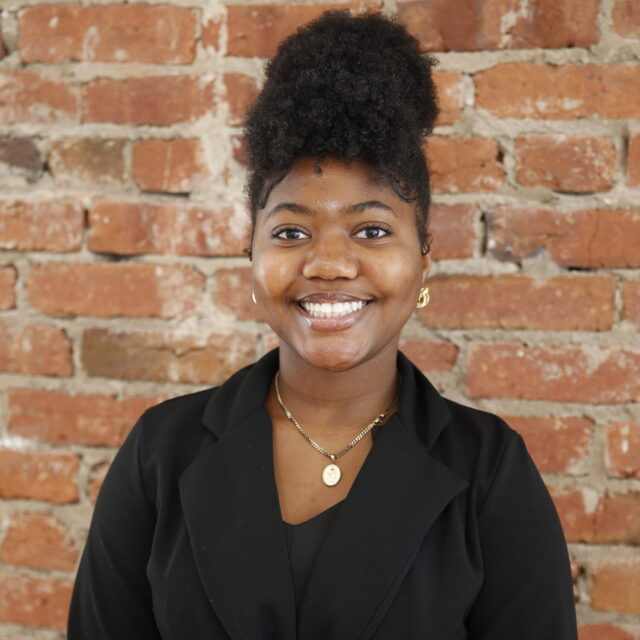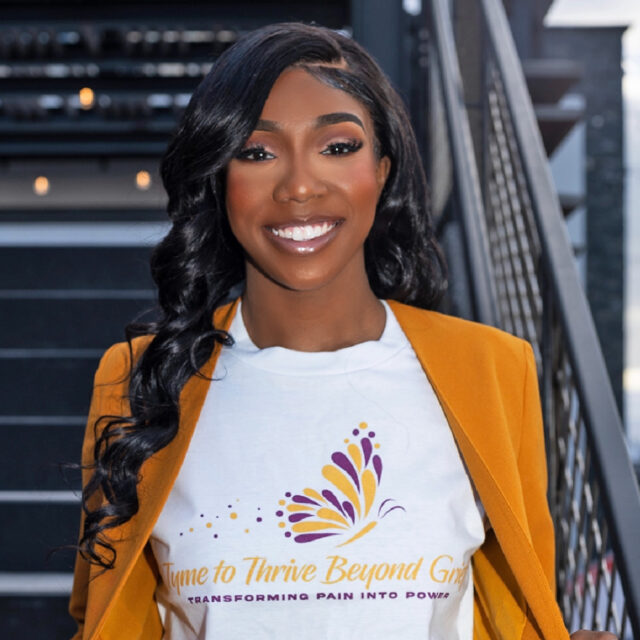Not Another Child: If There Is a Survivor in Need of Support, We Are There
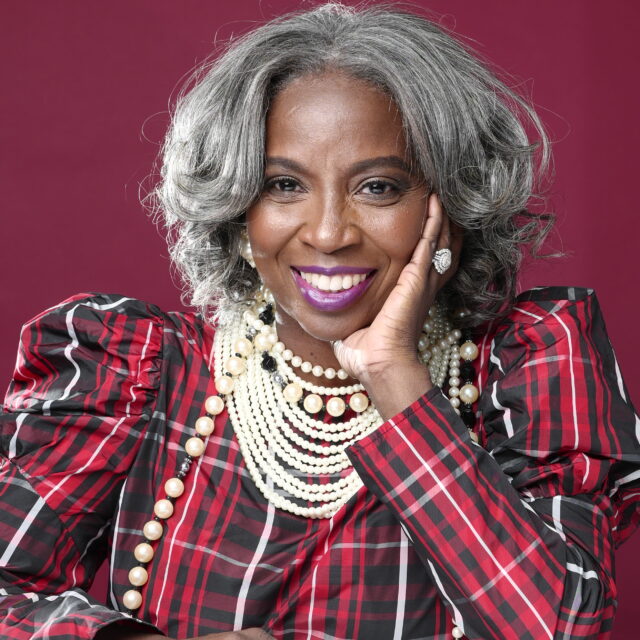
2.29.2024
I am the founder and CEO of Not Another Child, Inc. (NAC). Our mission is to provide a continuum of proactive and reactive support to individuals and families directly impacted by violence. By doing so, we hope to strengthen and heal communities.
The killing of my innocent son, Andrell Daron Napper, was the catalyst that thrust me into the work and led me to establish NAC for Andrell’s innocent murder. As I began advocating for justice for Andrell’s death and speaking to youth about the consequences of their actions, other parents began to share their stories and pain with me. They did so because my story was relatable for them; although they didn’t always feel able to share their pain with others, they would share their trauma with me because they recognized parts of their story in mine and knew I would understand.
I began to take on the burden that these parents shared and would speak for them with permission, advocating in public for the private suffering that so many families like mine endure. I also started to create services and programs that I knew would be beneficial to them in their grief journey. Seeing parents heal, recover, and grow is the most gratifying part of NAC for me. Seeing people use tools that other parents have given them during our time together continues to let me know that the support we give to each other is more vital than ever.
Part of my role at NAC involves creating and sustaining relationships, working to assess the needs of survivors, and designing creative services that support them on their journeys as they transition from victim to survivor to influencer. NAC is a product of showing survivors that our work is built not just around grief, but also around transformation. The combination of professionalism and purpose has taken us to places never thought possible, and NAC’s uniqueness is that my surviving son and I work together to accomplish the goal of healing individuals, families, and communities.
“I believe that the voices of Black people are vital to understanding this issue, as they are the ones that have always been closest to the problem—and they are now, more than ever, closest to the solutions.”
—Oresa L. Napper-Williams, founder and CEO of Not Another Child, Inc.
Our work was established as an anti-gun violence initiative yet after years of serving families and communities, we have merged it with pro-healing. Teaching conflict mediation and providing therapy to support individuals and families in and through their trauma is embedded throughout every program and service that we offer. The Everytown Community Safety Fund grant we received in 2022 has allowed NAC to build capacity and expand the services that we render to those directly impacted by gun violence. We have been able to offer more support to survivors during the pivotal memorial times of births, transition days, and holidays. We have also been able to increase the amount of survivors that can participate in our support groups, our healing retreat, and our pre-Mothers Day and other seasonal holiday events.
Our programs and services are built by assessing those who are directly impacted, and hearing the need behind the voiced need. We realize that although we have an experience, our experience is not the only experience. We are not scared or intimidated to create, build, and sustain relationships, and we are not bound by borders—if there is a survivor in need of support, we are there. We know that the work of survivors is minimized, and so we strive to continue to keep the voices of survivors at tables across the nation.
Gun violence has no boundaries. Every race, ethnicity, financial bracket, and location—inner city, suburban, or rural—has been touched by it. I believe people are under the assumption that, because they are not directly impacted by a loved one being murdered, it has no direct impact on them. But if you live in the same building, on the same street, you or your children go to the same school, play in the same park, or are employed in the same place where someone has been directly impacted by gun violence, then you have been also.
Just the mere sound of a gunshot or seeing blood on the ground affects us in ways unimaginable. Although gun violence impacts everyone, Black Americans are disproportionately impacted by it, and therefore experience more collective trauma from gun violence than any other race or community in the United States. Gun violence gets the most recognition and investments when mass shootings—and shootings outside of our neighborhoods—occur. Yet within our communities, you will rarely find a family that has not been touched by one side of the gun or the other. I believe that the voices of Black people are vital to understanding the issue of community violence, as we are the ones that have always been closest to the problem—and we are now, more than ever, the solutions.
“We are not scared or intimidated to create, build, and sustain relationships, and we are not bound by borders—if there is a survivor in need of support, we are there.”
—Oresa L. Napper-Williams, founder and CEO of Not Another Child, Inc.
As I reflect on Everytown’s theme for Black History Month, “Yesterday, Today, and Tomorrow: A Legacy of Black GVP Advocacy,” when I think of yesterday, I go back to 1985 and 2007. Those years were pivotal in my journey of learning about the travesties that gun violence does to our communities, and they stand out because I was indirectly and directly being impacted by gun violence.
The amount of gun violence victims was incredibly high at that time, but there was not the same advocacy and/or investment that we see today. Communities and individuals (myself included) continued to be re-traumatized by seeing the acts of gun violence happening before them, but we didn’t have therapy or counseling available. I often wonder where the parents and family members are who never received any type of support during this time.
Today seems hopeful. I believe that people are starting to “get it”: They are beginning to see that small and large changes can make a difference in this movement. Groups, organizations, and individuals are speaking up and speaking out, calling for everything from changes in legislation such as the Fair Access to Victims Compensation Expansion to advocating for community violence intervention (CVI) funding.
CVI work is definitely an ecosystem where one individual or entity cannot be great or successful without the others. There are many people who come to mind when I think of those doing good work in this space: AT Mitchell, the first NYC gun czar, who saw the work that I could bring to the ecosystem from my lens; my survivor mentors, Jackie Rowe-Adams and Dorothy Johnson-Speight. Erica Ford, who pushes me into challenges; Dr. Chico Tillmon, Pastor Mike McBride, Marcus McAllister, Anthony Smith, Dr. Shani Buggs, Dr. Antonio Cediel, and Amber Goodwin; and all of the NAC survivors who allow me to be part of their lives.
As we continue to journey in this world of CVI, I look forward to the day that survivors play a bigger role in the ecosystem. I truly believe that survivors are a hidden, untapped vital entity of this work.
Making violence prevention an actual field of work and being able to support the field with education—such as the Community Violence Intervention Leadership Academy—to enhance those who already bring a vast amount of experience assures me that we are here to stay. And this makes tomorrow, the future, look even brighter.


